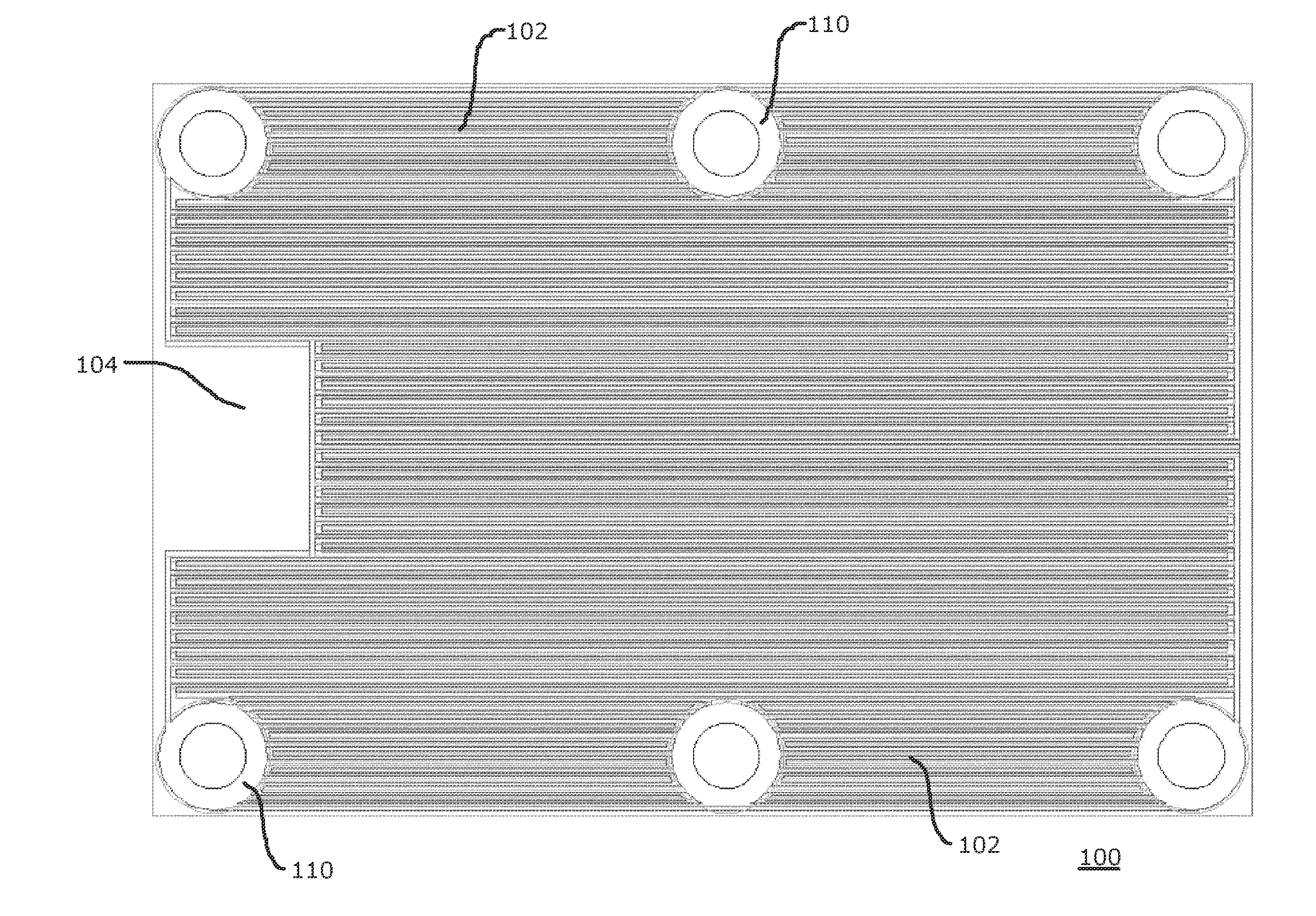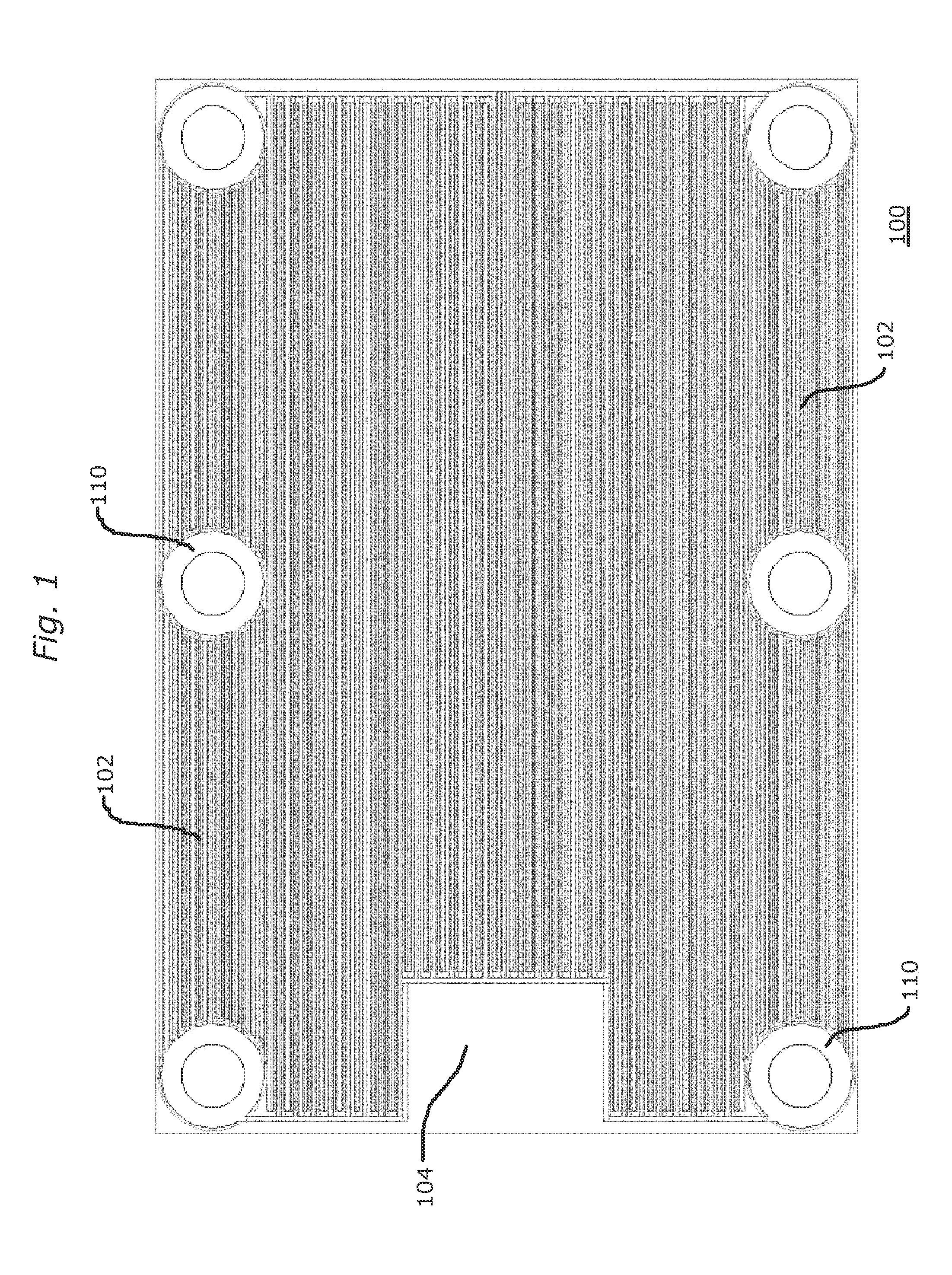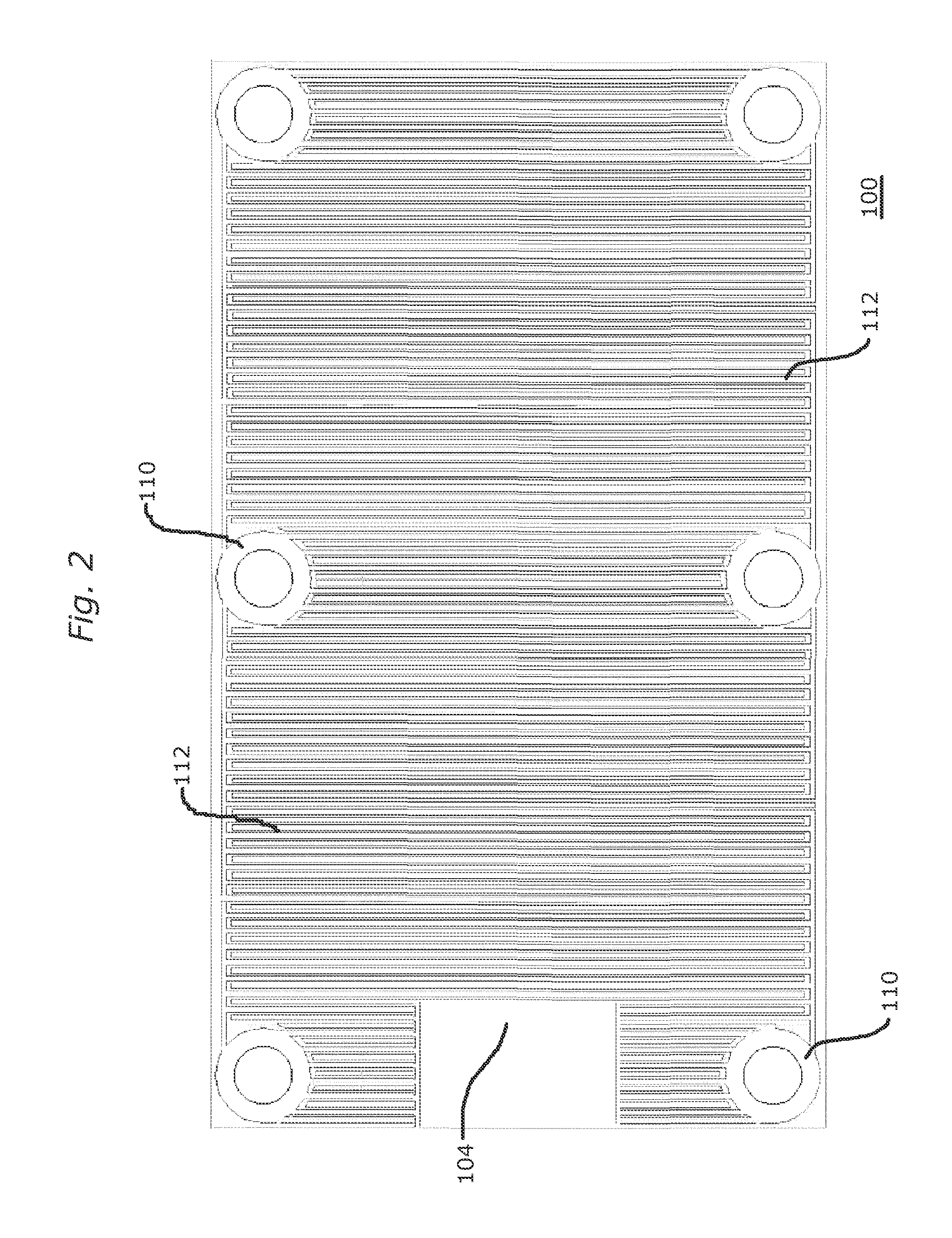E-field shield for wireless charger
a wireless charger and shielding technology, applied in the direction of battery overheat protection, safety/protection circuit, transportation and packaging, etc., can solve the problems of wasting heat of the charger coil, no conductive loop established above the coil, and the temperature rise of the charger surface that contacts the chargeable device, etc., to achieve enhanced heat sink function, reduce the effect of waste heat, and enhance the effect of e-field shielding pattern
- Summary
- Abstract
- Description
- Claims
- Application Information
AI Technical Summary
Benefits of technology
Problems solved by technology
Method used
Image
Examples
Embodiment Construction
[0050]FIG. 1 is a plan representation of one side of an E-field shield 100 constructed in accordance with the principles of the invention, and depicts plural electrically conductive traces 102 arranged longitudinally on a circuit board 104. In this specific illustrative embodiment of the invention, circuit board 104 is configured for use with a wireless charger (not shown) for a handheld device (not shown). Electrically conductive traces 102 are electrically coupled to one another at solid patterns 110, and do not form, in this embodiment, any closed loops. The solid patterns, in this embodiment, are formed of copper and are arranged so as not to be located in the region (not specifically designated) of circuit board 104 that would be near the charging coil (not shown in this figure) of the wireless charger.
[0051]Electrically conductive traces 102 are separated from one another by a distance that is, in some embodiments, responsive to the frequency of the electrical energy that is d...
PUM
 Login to View More
Login to View More Abstract
Description
Claims
Application Information
 Login to View More
Login to View More - R&D
- Intellectual Property
- Life Sciences
- Materials
- Tech Scout
- Unparalleled Data Quality
- Higher Quality Content
- 60% Fewer Hallucinations
Browse by: Latest US Patents, China's latest patents, Technical Efficacy Thesaurus, Application Domain, Technology Topic, Popular Technical Reports.
© 2025 PatSnap. All rights reserved.Legal|Privacy policy|Modern Slavery Act Transparency Statement|Sitemap|About US| Contact US: help@patsnap.com



